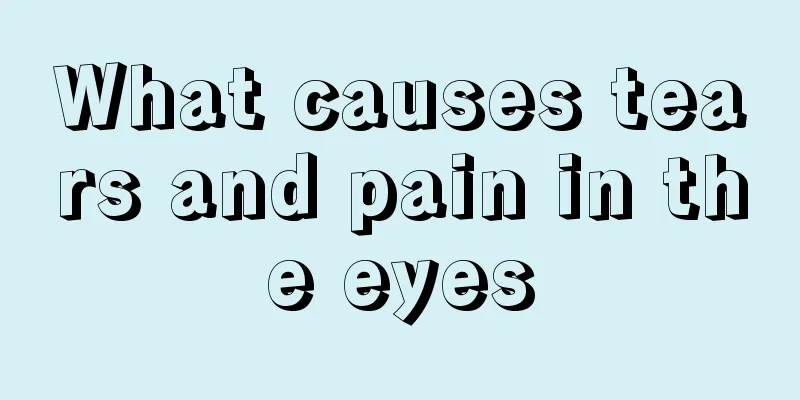The blood pressure lowering principle of antihypertensive drugs

|
Antihypertensive drugs have certain blood pressure lowering principles, because the preparation method of each antihypertensive drug should be different. When people develop hypertension, they will definitely choose appropriate antihypertensive drugs for treatment. However, most of the ingredients of each antihypertensive drug should be the same, but there are still some differences in some individual ingredients. So what is the blood pressure lowering principle of antihypertensive drugs? How blood pressure medications work The first type of antihypertensive drug is diuretics, whose main function is to achieve the purpose of lowering blood pressure by excreting sodium, reducing extracellular volume, and lowering peripheral vascular resistance. Second, beta-receptor antagonists mainly play a role in lowering blood pressure by inhibiting myocardial contractility and slowing down heart rate. The blood pressure lowering effect is strong and rapid. Third, calcium channel blockers. Their antihypertensive effect is mainly achieved by blocking calcium channels, reducing the entry of calcium ions into vascular smooth muscle cells, weakening the excitation-contraction quintuple, thereby reducing vascular resistance and reducing the contraction response of blood vessels to achieve the purpose of lowering blood pressure. Fourth, angiotensin converting enzyme inhibitors. The antihypertensive effect of this type of drug is mainly to inhibit angiotensin converting enzyme in the circulation and tissues, thereby reducing the production of angiotensin, and at the same time inhibit kininase to reduce the degradation of bradykinin, thereby achieving the purpose of lowering blood pressure. The fifth category, angiotensin 2 receptor antagonists, achieve the purpose of lowering blood pressure by blocking angiotensin II receptors. Antihypertensive drugs should not be taken together with nonsteroidal anti-inflammatory drugs Nonsteroidal anti-inflammatory drugs are commonly used treatments for arthritis patients. They can reduce inflammation and relieve pain. Common ones include indomethacin, ibuprofen, and Voltaren. When used with antihypertensive drugs such as angiotensin-converting enzyme inhibitors or diuretics, the antihypertensive effect will be reduced. Antihypertensive drugs should not be taken together with antiarrhythmic drugs Some antiarrhythmic drugs are also antihypertensive drugs, such as the beta-blockers Metoprolol and Conxin and the calcium channel blockers sustained-release Verapamil and Tandecartane, which can slow down the heart rate and have an inhibitory effect on cardiac conduction, so they should not be used together. When taking amiodarone, the combined use of the diuretic indapamide can cause hypokalemia and aggravate arrhythmias. Do not take antihypertensive drugs with levodopa The treatment of Parkinson's disease requires the use of levodopa. This type of drug, when used in combination with reserpine and compound antihypertensive tablets containing reserpine, will affect the antihypertensive effect. Do not take antihypertensive drugs with digoxin When patients with heart failure use the digitalis drug digoxin, if they also take the calcium channel blockers nifedipine and nicardipine, the blood concentration of digoxin will increase. On the one hand, it will affect the efficacy of antihypertensive drugs, and on the other hand, it will enhance the effect of digoxin, causing excessive strengthening of the heart and leading to damage. Do not take antihypertensive drugs with rifampicin Rifampicin has a bactericidal effect on Mycobacterium tuberculosis and is also a complete bactericidal drug that can be used to treat tuberculosis, enterococcal infections, etc. When taking the anti-tuberculosis drug rifampicin, it will affect the antihypertensive effect of calcium channel blockers. Do not take antihypertensive drugs with doxepin When patients with depression take the tricyclic antidepressant doxepin, it will affect the antihypertensive efficacy of the sympathetic nervous system inhibitory antihypertensive drugs clonidine and reserpine. |
<<: What are the effects of taking antihypertensive drugs for a long time
>>: I have a headache after taking antihypertensive medicine
Recommend
What is not suitable for thyroid cancer patients to eat
Thyroid cancer is a malignant tumor that originat...
Why do I walk crookedly to one side?
Normally, everyone can walk in a straight line, b...
What are the early symptoms of thyroid cancer? Pay more attention to these abnormalities
The thyroid gland is the largest endocrine gland ...
Difference between walnut and black walnut
Walnut is a superior material with excellent text...
Why do my feet always sweat?
Many people's feet sweat easily, which is ver...
How much physical energy does a cigarette destroy after sex?
Long-term smoking is not only harmful to the resp...
What should you pay attention to after endometrial cancer surgery? Patients should do this
Endometrial cancer is actually a malignant endome...
What are the most powerful detoxifying foods?
We often see some detoxification and beauty capsu...
The impact of teratoma medication on pregnancy
In life, teratoma is also a common disease in wom...
The efficacy and function of ovalbumin
When it comes to ovalbumin, many people don't...
Prevention of lung cancer should start with quitting smoking
What is the cause of lung cancer? Why are more an...
Can Aspidistra purify the air?
In life, everyone pays more and more attention to...
The hair on the face is black
We have a lot of sweat hairs on our faces. Some p...
Treatment methods and principles for colorectal cancer
Colorectal cancer is a common malignant tumor of ...
What are the examination methods for gallbladder cancer?
In recent years, gallbladder cancer has become on...









